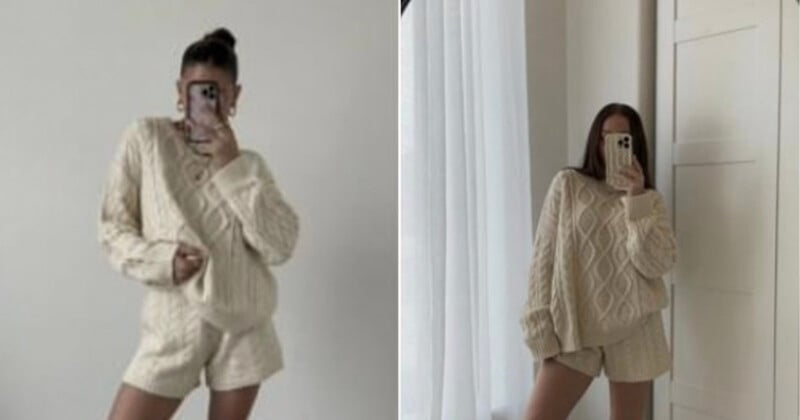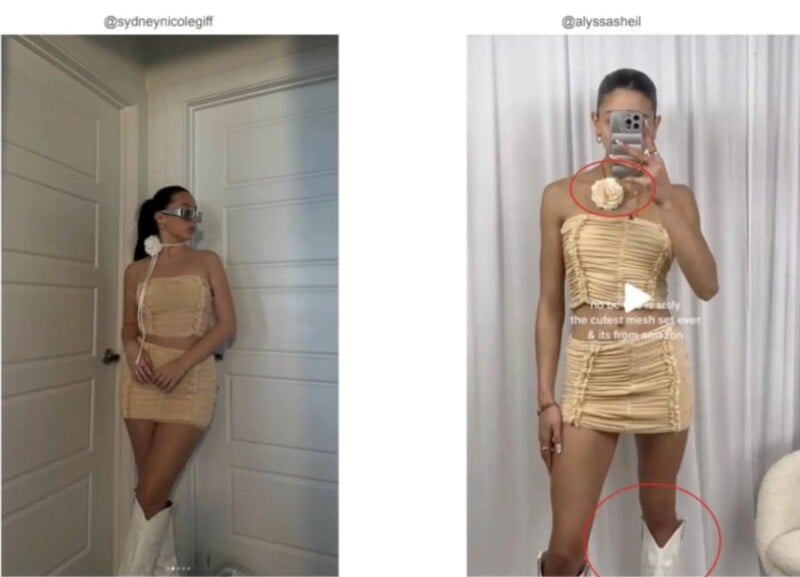Influencer Sues Another Influencer for Stealing Her Photo ‘Aesthetic’ in Landmark Case

An influencer is suing another influencer for copying her “aesthetic” in photos and videos on social media — in a case that may upend how copyright protections work in the content creation industry.
Texas-based influencer Sydney Nicole Gifford filed a first-of-its-kind copyright lawsuit against fellow content creator Alyssa Sheil accusing her of stealing her “neutral, beige, and cream aesthetic.

In the lawsuit filed in April, Gifford — who has over 790,000 followers across Instagram and TikTok — claimed “at least” 30 photo posts across Sheil’s platforms featured “identical styling, tone, camera angle and/or text” to her images.
Gifford also claimed that Sheil — who has 380,000 social media followers — posted “nearly identical videos” to her content.
In her lawsuit, Gifford provided multiple examples of Sheil’s posts that she argues are similar to her own and shared screenshots of the supposedly incriminating photos and videos.
One example shows Sheil wearing an identical outfit and roughly the same background color that Gifford used in one of her videos. Gifford argues that this is copyright infringement.
![]()
![]()
![]()
Another exhibit included a photo of Sheil “going to the very same institution” as Gifford did. Gifford claims that Sheil used nearly identical footage of the doormat at the store’s entrance branded “The Tox” as she did.
![]()
In her lawsuit, Gifford claims that she met Sheil in Austin in December 2022 “with the intent of supporting one another’s business,”
But following a joint photoshoot in January 2023, Sheil blocked Gifford online and it was then that the influencer began to copy her content.
According to court documents, Sheil began to publish posts that featured the same or similar Amazon products Gifford promoted and use styling and captions that also appeared to replicate her.
![]()
In August, Sheil asked the U.S. District Court for the Western District of Texas to dismiss Gifford’s lawsuit.
Sheil claimed that her photos embraced the “clean girl” aesthetic, a style characterized by a polished, minimalist look with an emphasis on neutral colors, and cited celebrities such as Hailey Bieber as an influence.
![]()
“Unsurprisingly, Gifford’s complaint conspicuously avoids the phrase ‘clean girl’ aesthetic,” Sheil’s lawyers argue in court documents.
“Anyone who googled that phrase or spent a few hours on TikTok or Instagram would quickly realize that it destroys Gifford’s case; her ‘look’ is not original.
“For that matter, on that front, neither is Sheil’s.”
A Case That Could Set a Legal Precedent
However, earlier this month, a Texas judge ruled that the copyright lawsuit should move forward — with Gifford sufficiently proving that Sheil misappropriated her likeness and violated copyright law by intentionally creating content “virtually indistinguishable” from her own.
In her lawsuit, Gifford is asking for $30,000 to $150,000 in damages for “mental anguish” and loss of income. She argues that the recurring patterns and Sheil’s strikingly similar content have ultimately impacted her earnings. Gifford is also seeking a preliminary injunction that would force Sheil to take down the alleged replicated videos.
Gifford’s case could set a legal precedent for how copyright protections work in the content creation industry. The case could lead to a deluge of similar suits from influencers.
According to a report in Business Insider, while many influencers have complained that other creators are stealing their ideas for content or uploading photos and videos in a similar style to their own, this appears to be the first time an individual has taken legal action.
Lawyer Taylor Tieman, who represents several influencers in the U.S., believes that Gifford’s lawsuit may be a hard case to argue because creators often draw inspiration from each other.
However, the case could spark a fire in the creator community regardless of whether Gifford wins or loses. On the other hand, if Gifford wins the case, Tieman tells Business Insider that it’ll “be nuts” because it will give more creators the confidence and ability to sue others in the industry.
Image credits: All photos via court documents.